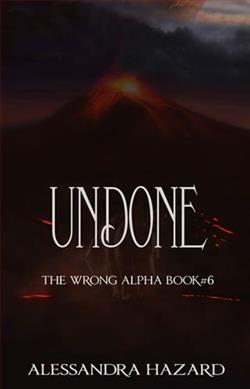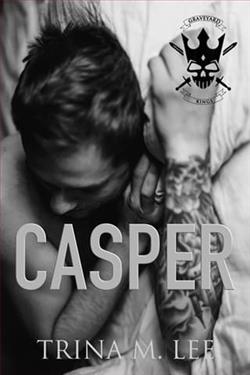Page 18 of Hunted By the Wraiths
“Left,” she said.
I turned. My scales scraped the wall again. The sound echoed. Subtle. Stealthy. Like dragging a rake across stone. The scientists would have noted: “Subject exhibits decreased tactical viability in confined spaces.” They’d have been right.
My breathing was getting louder. Wet. That was probably bad. Internal assessment: blood in lungs unlikely, infection setting in very likely, body shutting down from aggregate trauma most likely.
Still functional. Mostly.
The comm chatter bleeding through Maris’s stolen security channel painted a clear picture. Vashil had mobilized everyone. I counted voices, call signs, patterns. Thirty security. Ten of Maris’s own people who’d chosen their paychecks over their queen. Twenty bounty hunters pulled in for the payday.
Sixty hostiles hunting two people, one of whom was leaving a convenient blood trail.
Tactical assessment: We were fucked.
But Maris kept moving like the numbers didn’t matter. Like she’d survived worse. Knowing her, she probably had.
“Straight through,” she said at a junction. “Fifty meters, then down.”
My body had opinions about ‘down.’ Strong opinions. I voiced them: “Maris. I can’t?—”
“You can.” She didn’t look back. Good. If she looked back, she’d see how much blood I was losing. How my scales kept trying to shift—emerald, gray, emerald, gray—like a broken signal. How I was using the wall to stay upright.
She was right, though. I could. Had to. No other option.
Down we went. The passage narrowed further. No emergency lighting here. Just her single beam and absolute darkness pressing in. My hand hit the wall. Needed it for balance. For reference. For not falling on my face and embarrassing myself.
Three minutes since the last patrol check-in. My brain ran the tactical math automatically. Two minutes before they started checking lower levels. Maybe less. Vashil seemed competent. She’d betrayed Maris efficiently enough.
The blast door appeared in Maris’s light. Rusted. Ancient. The kind of door that screamed “nothing interesting here” to anyone who didn’t know better.
Maris knew better. She always did.
She shoved. The door groaned but didn’t move. I added my weight—what was left of it that wasn’t leaking out of various holes—and it scraped inward.
We stepped inside, and as she pushed the door shut the sound rang final in the small space.
Then her light swept the room and I saw our new safe house.
Calling it a tomb would have been generous. Tombs at least had dignity.
Raw asteroid rock walls sweating condensation. One emergency light strip flickering like it was having a seizure. Two metal cots that looked like they’d been installed during the original mining operation and left to rust. The space was maybe four meters square. Just big enough for two people who didn’t mind each other.
We minded. Or rather, my biology minded. The proximity in this tiny space sent the bond pain screaming up to a solid ten.
Somewhere above, water dripped. Steady. Rhythmic. Drip. Drip. Drip.
I tried to make it to the nearest cot. Missed. My knee hit the metal frame hard enough to buckle it. I caught myself on the wall, claws scraping stone.
“Sit,” Maris said, suddenly under my arm, taking weight I didn’t remember losing.
I sat. The cot groaned. Probably wasn’t rated for seven feet of dying Tamzari.
She dropped her pack on the other cot. Even in the bad light, I could see her running calculations. Inventory of supplies versus inventory of problems. The mathematics of keeping me functional.
The answer was clear: not enough. Not nearly enough.
But she pulled out her medkit anyway. Because that’s what Maris did. She worked with what she had. Made impossible math add up through spite and competence.
I leaned back against the wall. Closed my eyes. Tried to breathe without it sounding like I was drowning. Failed.















